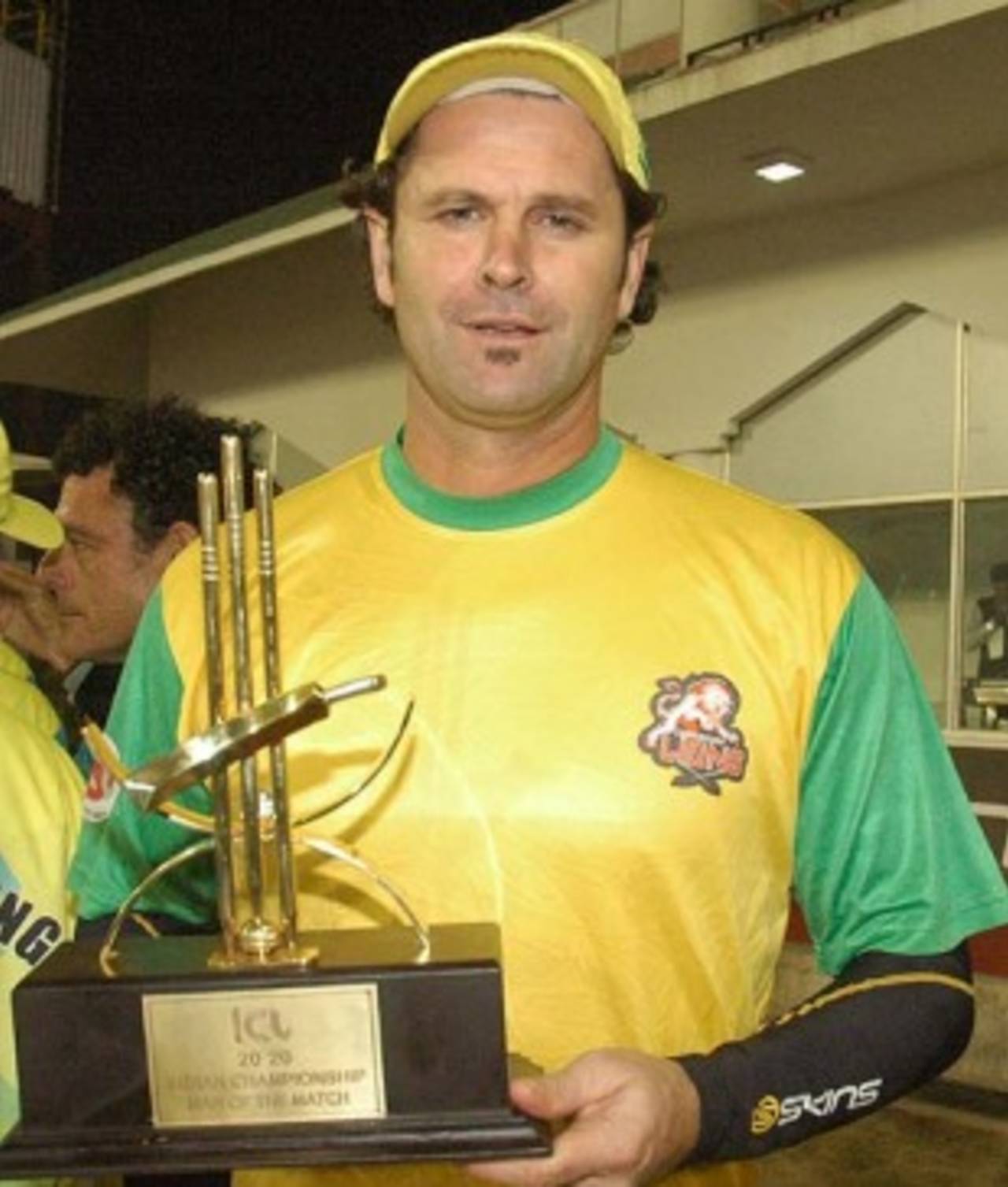New Zealand Cricket reviews anti-corruption measures
Checks came after Chris Cairns' suspension from the ICL
Cricinfo staff
01-Jun-2009

Chris Cairns was suspended by the ICL for not reporting an ankle injury before participating in the competition • ESPNcricinfo Ltd
Chris Cairns' suspension from the ICL prompted New Zealand Cricket (NZC) to carry out a review of its anti-corruption measures, Justin Vaughan, the board's chief executive, said. Cairns, along with left-hand batsman Dinesh Mongia, was suspended "on disciplinary grounds" from the league on October 27 last year, and his contract was terminated at the start of this year.
The ICL had stated that Cairns didn't report his ankle injury before participating in the tournament, and Mongia, despite knowing of the injury, did not share the information with the league's officials. However, the move did fuel rumours of match-fixing, which Mongia, and Cairns' lawyer promptly denied.
Andrew Fitch-Holland, who is representing Cairns, reiterated the denial in the Herald on Sunday. He described the claims as "unfounded allegations" and said questions over Cairns' "reputation and probity" were taken seriously.
He said that Cairns was a "dedicated competitor" who had decided to "agree a termination of his contract" as a result of the "uncertainty over the league's future and Chris' ongoing struggle with injury". "He has other important activities to focus on, not least his foundation and its active work on rail safety."
Vaughan, though, said the review was confined to NZC's internal processes rather than a study of past games. "There was some checking of our internal controls," he told the paper. "I wanted to check around what are the protocols and that we were completely comfortable those protocols were followed [within NZC] - to make sure our own house is in order."
The review also comes in the wake of a realisation that Twenty20 cricket is more vulnerable to match-fixing, given its enormous popularity and the increasing frequency with which it's being played. Several New Zealand players participated in the ICL and the IPL. Vaughan said "sanctioned and unsanctioned" leagues operated largely outside the ICC's sphere of control, and had raised the issue of Twenty20 cricket being a "particular risk area."
NZC also runs an ICC-led education programme on corruption for players with each contract clearly stating what was expected of them. "It is important to remind players to be vigilant, especially when they are on their own outside the team environment," Vaughan said.
Heath Mills, manager of the New Zealand Cricket Players' Association, stressed that corruption and security were cricket's greatest concerns. "The game is at risk of problems occurring around the development of these Twenty20 competitions," he said. But he had "complete confidence" in New Zealand's players. "In this country they understand issues around match-fixing."